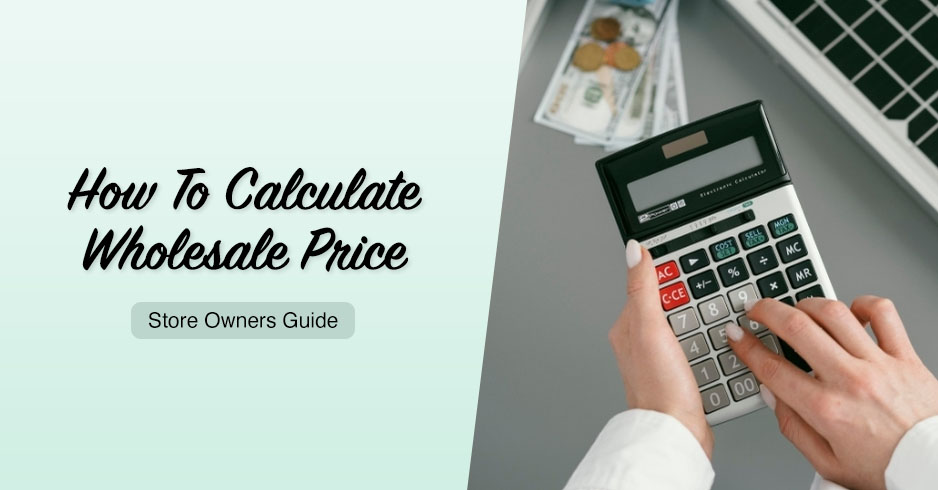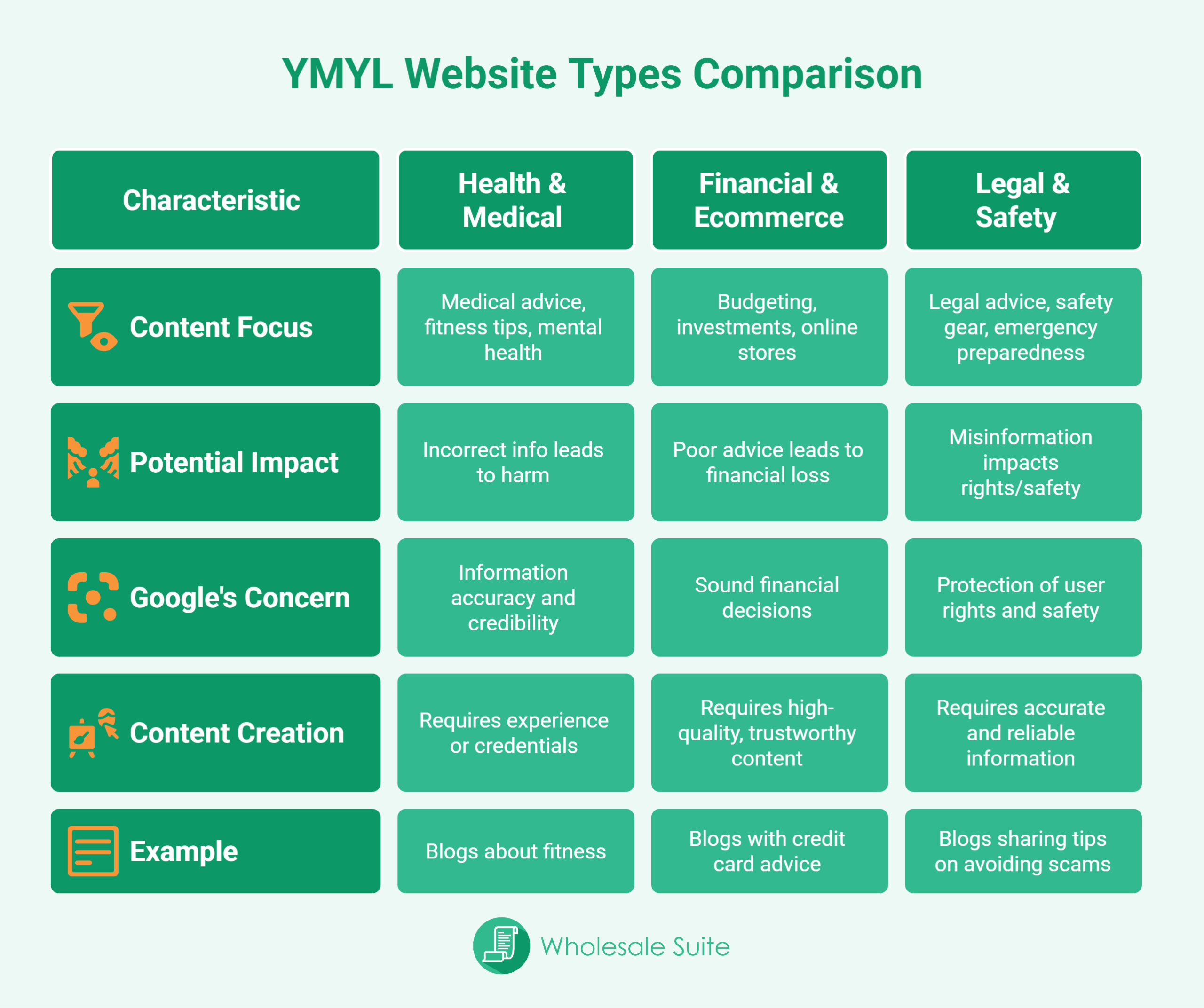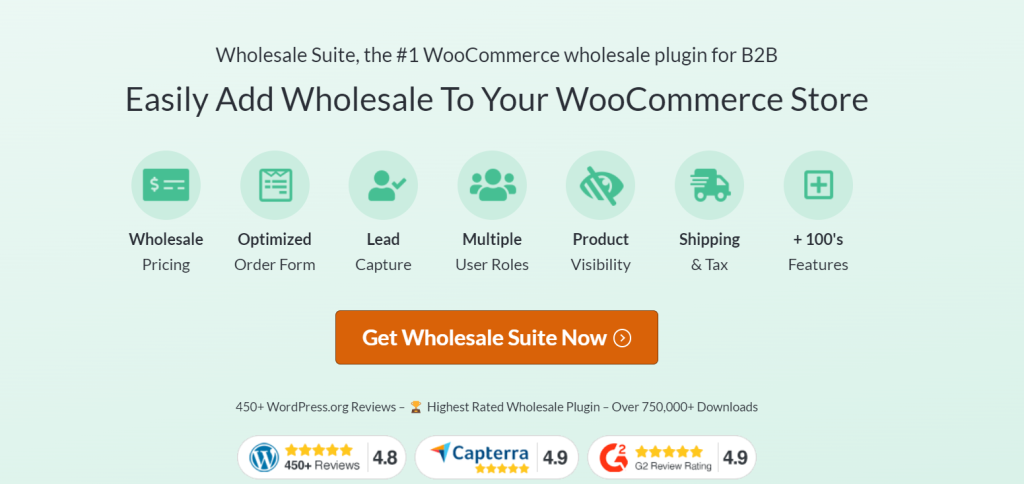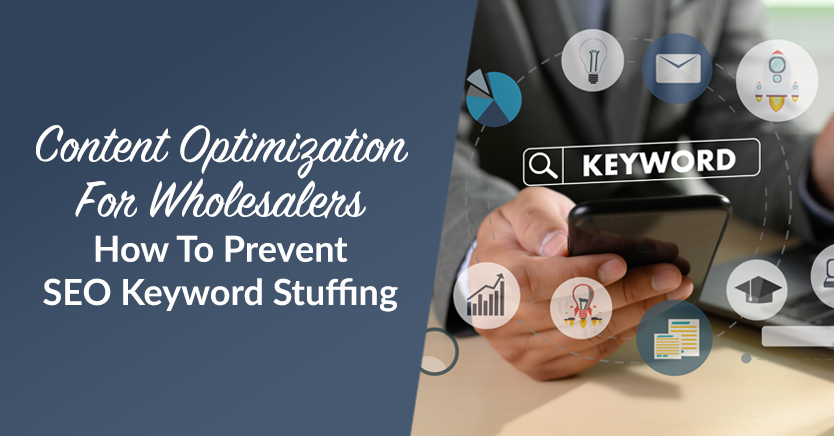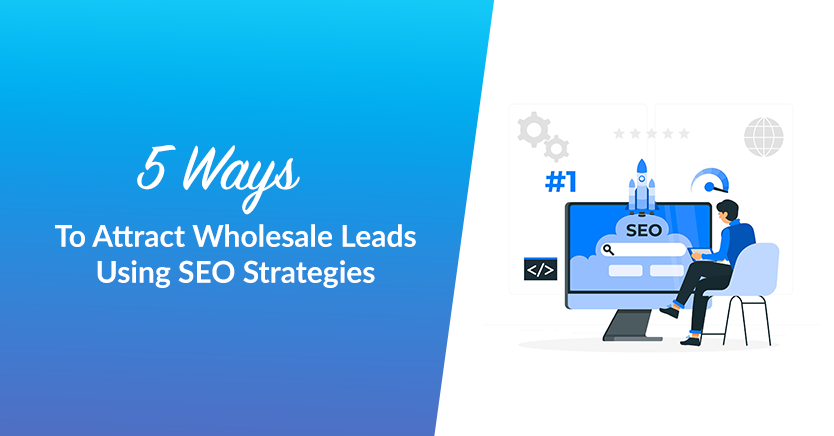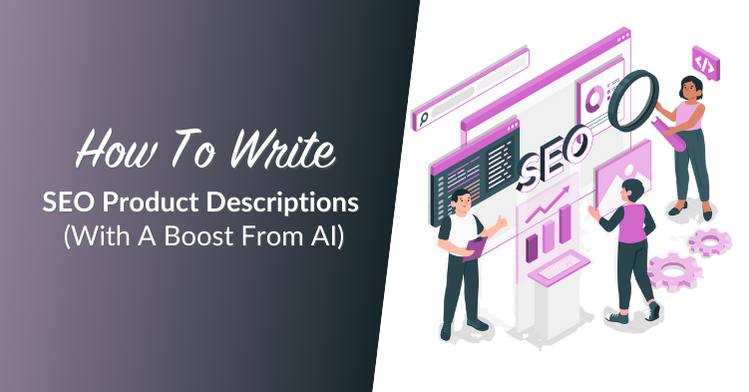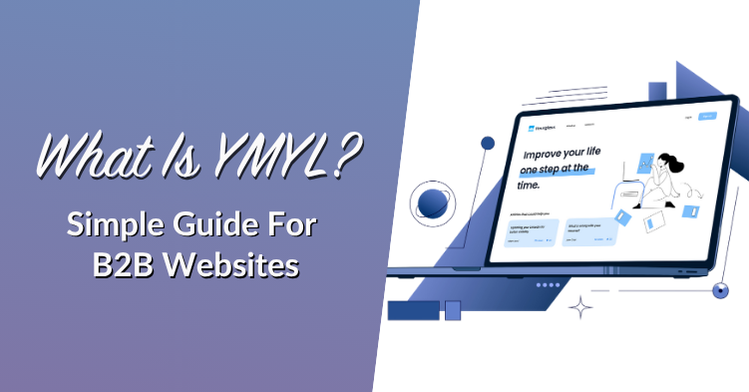
If you’ve ever asked yourself what is YMYL, you’re not alone. YMYL stands for “Your Money or Your Life,” and it’s one of the most important ideas in SEO today. Google uses this term to describe content that can affect someone’s health, money, safety, or rights.
YMYL is a big deal for anyone creating online content. If your blog, website, or online store discusses medical advice, financial information, or legal topics, your pages might be seen as YMYL content. Even if you’re not in those industries, you can still be affected, especially if you run a business that sells important products or handles big transactions.
So, let’s take a closer look at what YMYL is, how it works in SEO, and what you need to know to keep your website trusted and easy to find.
What YMYL Means In SEO
We’ve already introduced you to YMYL. Let’s talk about how it connects to SEO. If you’re writing for the web, Google wants your content to meet a higher standard, especially in areas like money, health, or safety. This is because your words can influence real-life decisions. In other words, your content can help someone or harm them, so it needs to be accurate, trustworthy, and well-made.
To do this, Google uses YMYL guidelines to judge if a page is helpful or risky. These rules affect how your site ranks in search results. If you want SEO success, you need to follow these guidelines and build pages that Google trusts.
What does “Your Money or Your Life” cover?
The phrase “Your Money or Your Life” sounds dramatic, but it’s one of the most important concepts in SEO today. If you’re still wondering what YMYL is, this is where it becomes clear. It refers to any page that could impact someone’s health, financial decisions, personal safety, or legal rights. These are serious topics, so Google looks at them differently than regular lifestyle or entertainment content.

If you publish a blog about medicine, offer financial information, or run a store selling safety tools, your content might be marked as YMYL. This means your page is expected to follow YMYL guidelines and meet a higher standard of accuracy and trust. Google created this rule to help people avoid false or dangerous advice online.
Because of this, YMYL websites must do more than share opinions. They must share facts, cite sources, and provide clear answers. The content must be correct if someone’s money or health is on the line. That’s where YMYL SEO comes in. These are the SEO practices made to support this kind of content. So, if you’re still asking what is YMYL, in simplest terms, it’s all about building pages that respect the importance of real-life decisions.
Types Of Websites That Fall Under YMYL
Google treats websites differently. Some have more power to affect people’s lives, so Google holds them to higher standards. These are called YMYL websites, and if you manage one, you need to follow certain rules to protect your readers and help your site rank well. Let’s look at the most common types of YMYL pages.
1. Health and medical sites
Health-related websites are a big part of YMYL content. That includes blogs about fitness, mental health tips, supplement shops, and even telehealth clinics. Why? Because wrong or confusing medical information can lead to serious harm. For example, telling someone the wrong way to take medicine or treat an illness could make them feel worse.
If you’re creating health content, you need to be extra careful. Google wants this information to come from people with real experience or credentials in medicine or healthcare. This is one of the top examples of SEO best practices meeting YMYL guidelines. You don’t need to be a doctor, but if you share advice, it should come from one.
2. Financial services and ecommerce
Money is another area where Google gets strict. Blogs that offer budgeting tips, credit card advice, or investment strategies fall into the YMYL category. Even online stores that sell high-priced items or process large orders can be seen as YMYL websites.
This is especially true for B2B wholesale stores that handle bulk orders or discounts, custom invoices, or financial agreements. If your store lets businesses buy in large amounts, then you might be offering more than products—you’re offering financial decisions. Google wants those decisions to be based on high-quality content that people can trust.
That’s why you need good SEO practices and secure website tools to support your store.
You may also read: 10 Must-Have Free WooCommerce Plugins For Your Store.

3. Legal or safety-related sites
Legal and safety topics can also fall under YMYL. If your website offers legal advice, sells safety gear, or shares information about emergency preparedness, then Google will treat your content carefully. These types of sites can affect a person’s rights or physical safety. That’s a big deal.
For example, a blog sharing tips on avoiding online scams or a store selling personal protection gear count as YMYL pages. Any content about safety laws or legal rights should be explicit and based on facts. These websites must follow YMYL SEO standards and avoid making bold claims without proof.
Writing Trustworthy Content For YMYL Pages
Creating strong YMYL content means writing in a way that builds trust. Here are five simple ways to follow YMYL guidelines and improve your YMYL SEO:
1. Use simple words
Always choose the easiest words that still get the message across. Don’t try to sound smart by using hard-to-read terms. If you can say it in five words instead of fifteen, do it. This helps people understand your content faster and helps Google know your page is clear and helpful.
2. Show expertise
Explain how you know what you’re talking about if you’re giving advice. Are you basing it on your personal work experience? Industry reports? Customer results? Google wants to know that your content comes from a real source, not just guesses. For example, if you sell safety gear, you can say you’ve worked with companies that use these tools every day. That kind of proof builds trust.
3. Stick to facts
Don’t make promises you can’t keep. If you say a product can help, be ready to show how. Use real numbers, quotes from reliable sources, or real-life customer examples. Saying “This may help reduce risk” is better than “This will protect you completely.” Google prefers honest, clear writing that doesn’t exaggerate.
4. Avoid confusion
People leave websites when they feel lost. So make sure your prices, product details, and instructions are easy to follow. Use short sentences, clean formatting, and simple labels. If buyers don’t understand something, they might think your site isn’t accurate or safe. And that’s a problem, especially for YMYL content where trust matters most.
5. Show real value
If your content talks about health, safety, or money, take extra care with every word. Don’t just say a product works; explain how it helps. Use examples that people can relate to. If someone will use your advice in their real life, you need to be sure it’s clear, correct, and based on something solid. That’s what Google wants to see on every YMYL page.
How YMYL Applies To B2B Wholesale Businesses
When content writers go through the Google search console and ask, what is YMYL, and unknowingly think it only applies to blogs or medical websites. But the truth is, YMYL content shows up in many places, including B2B wholesale businesses.
So if you’re running a B2B store, it’s essential to understand what is YMYL and how it affects your SEO. Here are two reasons why YMYL SEO matters for wholesale stores:
Selling regulated products or bulk transactions
Your store might be marked as YMYL content if you sell regulated products. These could include medical equipment, finance-related items, or safety tools. If your products directly affect someone’s work, health, or legal status, then your website falls into the YMYL category.
Customers expect secure, clear, and reliable info
If someone spends thousands of dollars on your site, they’re not just looking at your product; they’re looking through your whole store. Is your pricing clear? Is your checkout process safe? Do your product pages look honest and helpful? These questions all relate to YMYL SEO.
B2B buyers are careful. They expect high standards. And so does Google. If your content is hard to understand or if your pricing looks misleading, it could hurt your rankings. That’s why you need to be aware of what is YMYL, how it works for your site, and how it connects to your online business.
Hence, Wholesale Suite is built precisely for this. It allows B2B store owners to show professional wholesale pricing, approve buyers before checkout, and make each transaction clear and safe. These features help reduce risk, which is essential if your site falls under YMYL content. They also help you earn trust from your wholesale customers, which is one of the most important goals in YMYL SEO.
Other Related Articles
Frequently Asked Questions
What is the concept of YMYL?
YMYL means “Your Money or Your Life.” It refers to online content that can affect a person’s health, safety, finances, or legal rights. Google pays close attention to this content to protect users from harm.
What is YMYL in SEO?
In SEO, what is YMYL refers to Google’s higher standards for specific websites. If your content could impact important life decisions, Google wants it to be accurate, trustworthy, and written by someone with actual knowledge.
What industries are affected by Google YMYL updates?
Industries like healthcare, finance, law, and public safety are all affected. Google may flag ecommerce stores, especially B2B sites, as YMYL websites if they handle large orders or sensitive financial information.
How do I improve YMYL SEO on my website?
Start with clear writing, honest claims, and verified sources. Follow SEO best practices, use trusted tools, and always consider the reader’s safety and understanding. This is how strong YMYL content is built.
Conclusion
Understanding what is YMYL is no longer optional; it’s part of building a secure, trustworthy online presence. If your content affects someone’s money, health, or safety, then Google expects more from you. And your buyers do, too!
In this article, we discussed the essential things you need to know about YMYL:
- What YMYL means in SEO
- Types of websites under YMYL
- Writing trustworthy content for YMYL
- How YMYL applies to B2B
Whether you’re writing product descriptions, pricing pages, or blog posts, your content should follow clear YMYL guidelines. That means using facts, showing expertise, and always prioritizing the reader’s safety. Pages with financial information or bulk purchase options must be easy to understand, secure to use, and free of confusing claims. These aren’t just SEO best practices but the foundation of trust.
At the end of the day, YMYL SEO is about more than algorithms. It’s about helping real people make good choices. Tools like Wholesale Suite support that goal by giving you secure transactions, professional pricing displays, and verified customer access.
If your B2B site falls into the YMYL category, now’s the best time to raise your standards, review your content, and ask yourself: 💬 Is your B2B site built to meet YMYL standards?

